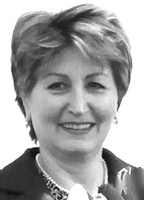Female students' fitness shape variations in academic cardio-strength fitness groups
Фотографии:
ˑ:
Teoriya i praktika fizicheskoy kultury №8 2017, pp.44-46
PhD, Associate Professor G.N. Tkhazelplova1
PhD, Associate Professor А.М. Tkhazeplov1
1Berbekov Kabardino-Balkarian State University, Nalchik
Objective of the present study was to give theoretical and experimental evidence of the functional progress made by female students in the academic fitness groups.
The education process surveys were performed to analyse the practical design and content of the training sessions and included the qualitative and quantitative rates of the training practices; progress tests; content and performance analysis; plus analyses of physical fitness, progress rates and the individual motivations of the students (physical health improvement, shaping etc.) attending the fitness groups. The progress testing practices were designed to rate progress in the speed-strength abilities and strength endurance of the trunk and limb muscles.
The fitness program assisted by the cardio-strength training simulators with application of special fitness exercises was designed to reinforce and develop every muscle group and build up the strength and speed-strength qualities and abilities, with the program benefits verified by the meaningful (р<0.05) physical progress rates in the course of the experiment. The study data obtained by means of variational cardiointervalometry (CIM) with the HR variability being rated by ECG made it possible to profile the vegetative nervous system (VNS) performance and the VNS functionality in the female students of the cardio-strength fitness groups in the study period. The adaptive capability disorders found by the experiment were interpreted as evoked by stresses of the neurohumoral regulatory mechanisms and dominated by dedaptation to physical workloads. The HR variability analyses and data interpretations made it possible to profile the students’ cardiovascular system adaptive capability.
Keywords: cardio-strength training, physical fitness, training simulators, cardiointervalogram, mental standardization.
References
- Ashmarin B.A. Teoriya i metodika fizicheskogo vospitaniya [Theory and methods of physical education]. Moscow: Prosveschenie, 1990, pp. 26-28.
- Berezin F.B., Miroshnikov M.P., Sokolova E.D. Metodika mnogostoronnego issledovaniya lichnosti [Method of multilateral study of personality]. Moscow: Folium, 1994, 175 p.
- Vaytsekhovskiy S.M. Kniga trenera [Coach's book]. Moscow: Fizkultura i sport, 1971, pp. 243-230.
- Dubrovskiy V.I. Sportivnaya meditsina [Sports medicine]. Moscow: Vlados, 1998, 432 p.
- Evseev Y.I. Fizicheskaya kultura [Physical Culture]. Rostov-on/D.: Fenix publ., 2005, P. 7.
- Zheleznyak Y.D. Osnovyi nauchno-metodicheskoy deyatelnosti v fizicheskoy kulture i sporte [Fundamentals of scientific and methodological activities in physical culture and sports]. Moscow: Akademiya, 2005, 454 p.
- Ustroystvo psihofiziologicheskogo testirovaniya UPFT-1/30 – «Psihofiziolog»: metod. spravochnik [Psychophysiological testing device UPFT-1/30 - "Psychophysiologist": method. directory]. Medicom MTD, 2004, 77 p.




 Журнал "THEORY AND PRACTICE
Журнал "THEORY AND PRACTICE